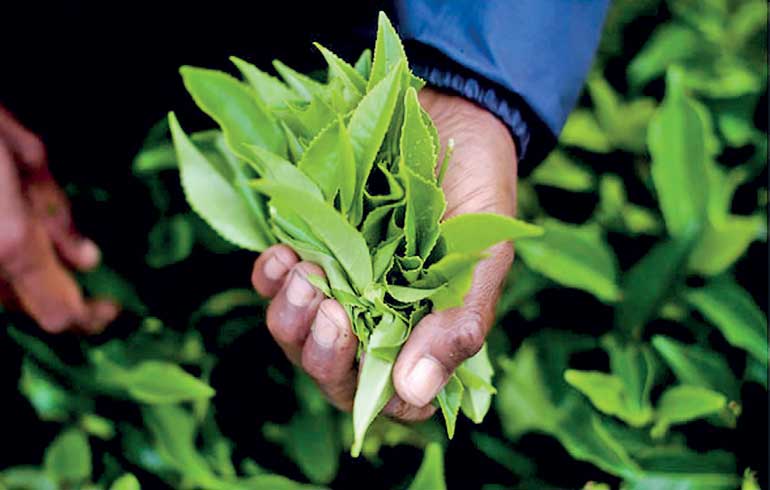Wednesday Feb 25, 2026
Wednesday Feb 25, 2026
Tuesday, 30 January 2018 00:00 - - {{hitsCtrl.values.hits}}

By Chathura Subasinghe
The ban of imports and usage of the Glyphosate weedicide has affected the Sri Lankan tea plantations and exports particularly to Japan, which is a major market for tea.
Glyphosate is a weedicide that was widely used by most tea plantations for the control of undergrowth weeds, in order to ensure that fertilising and harvesting was carried out successfully.
With the ban on imports and usage of Glyphosate, undergrowth and weeds have grown beyond any control making it dangerous to walk through the tea bushes in plantations due to the breeding of poisonous reptiles and other insects.
Japan being a major importer of quality Ceylon Tea for many decades accepted the residue levels of Glyphosate at reasonable levels. Japan being a very health conscious country has placed the acceptable residue level of Glyphosate in made tea at 0.15ppm. These have been arrived at after extensive research and testing by the Japanese health authorities.
In the absence of Glyphosate weedicide, the tea plantations are using another weedicide, namely MCPA – 2-Methyl-4-Chloro Phenoxyacetic Acid.
This weedicide is far more harmful to human health with the Japanese authorities having placed the acceptable residue levels of MCPA in made black tea at 0.01ppm.
Most of the teas produced in Sri Lanka, except for a few plantations, produce teas which have MCPA residue levels far in excess of the limits placed by Japan.
In fact, majority of our teas produced do not meet the maximum residue levels (MRL) for MCPA by European countries which is at 0.05ppm.
The short sighted decision made by the authorities in banning Glyphosate weedicide in Sri Lanka will result in the loss of another major market for Ceylon Tea in Japan.
Tea exporters who have invested large sums of funds in the promotion of Ceylon Tea in Japan, are now helpless and cannot export the tea, unless authorities take immediate and long-term solutions to this national crisis.
The tea industry in Sri Lanka employs over a million citizens directly and indirectly.
The loss of a premiere market like Japan will not only affect the tea producers and exporters but also have far reaching repercussions on support industries such as packaging and printing industry, sea freight and air freight (transportation industry) and many others.
The authorities must also understand the long term effects Sri Lanka will face in such a situation and if immediate action is not taken, the country will lose another opportunity of gaining much needed foreign exchange to the country.